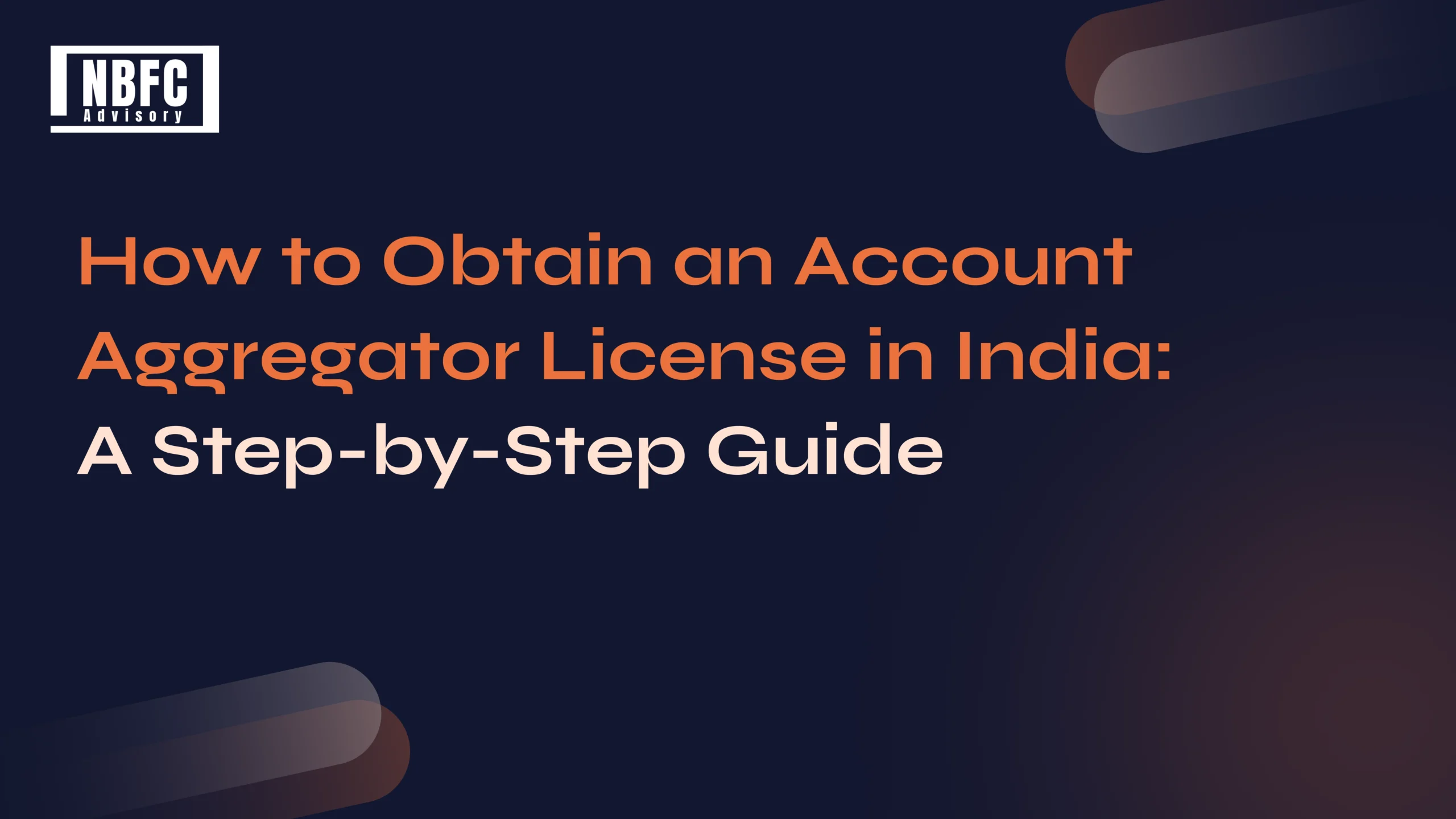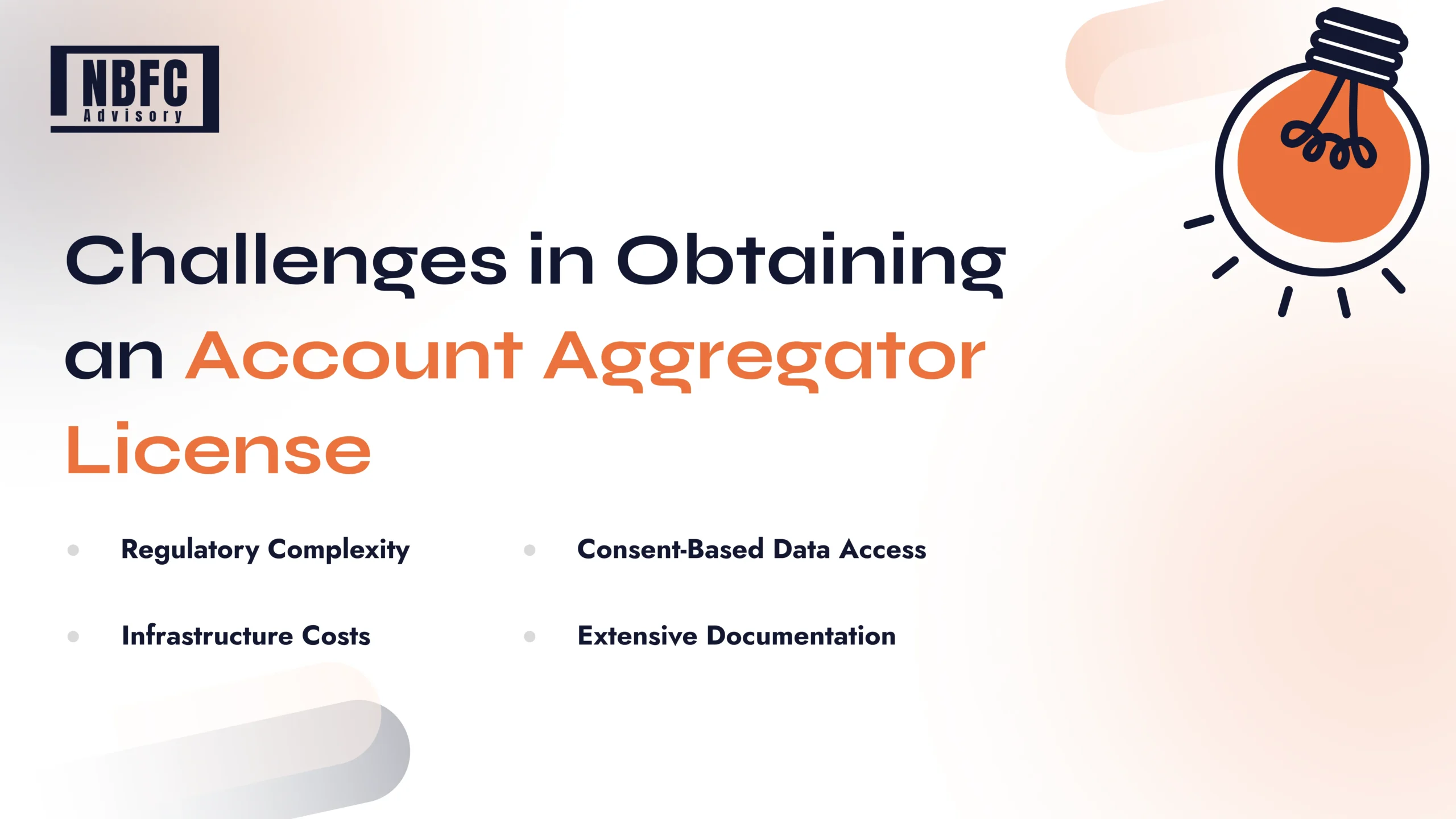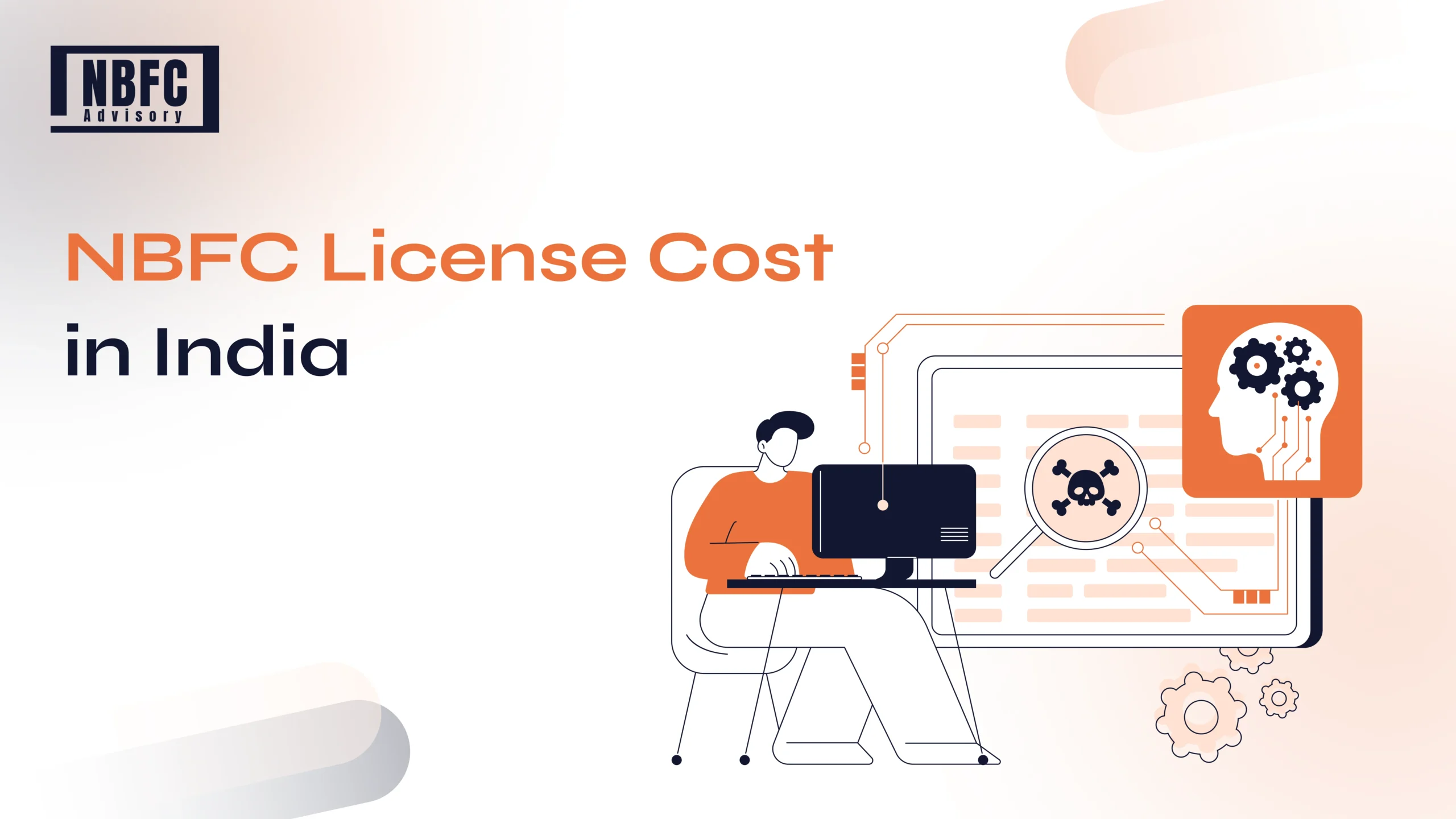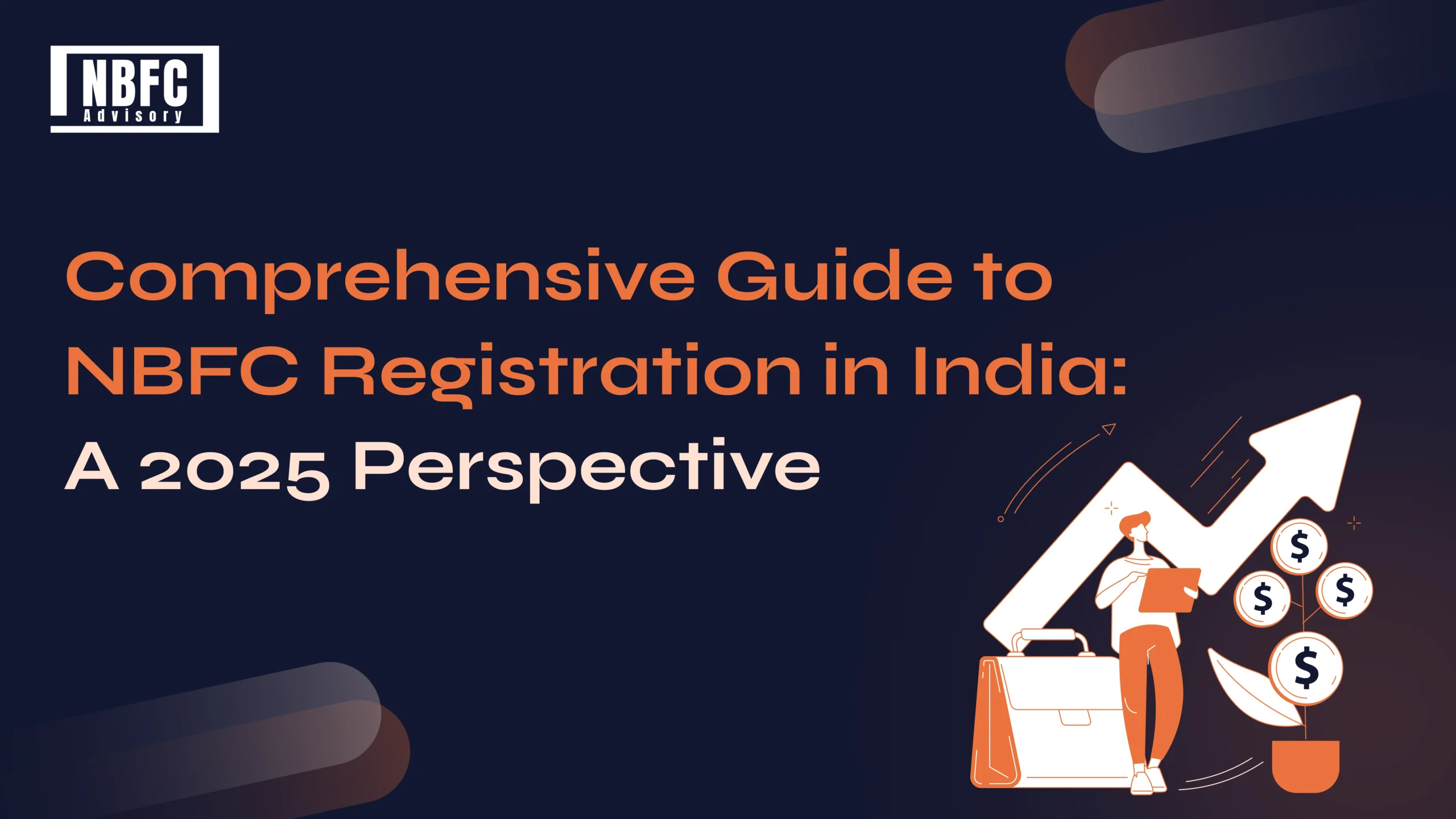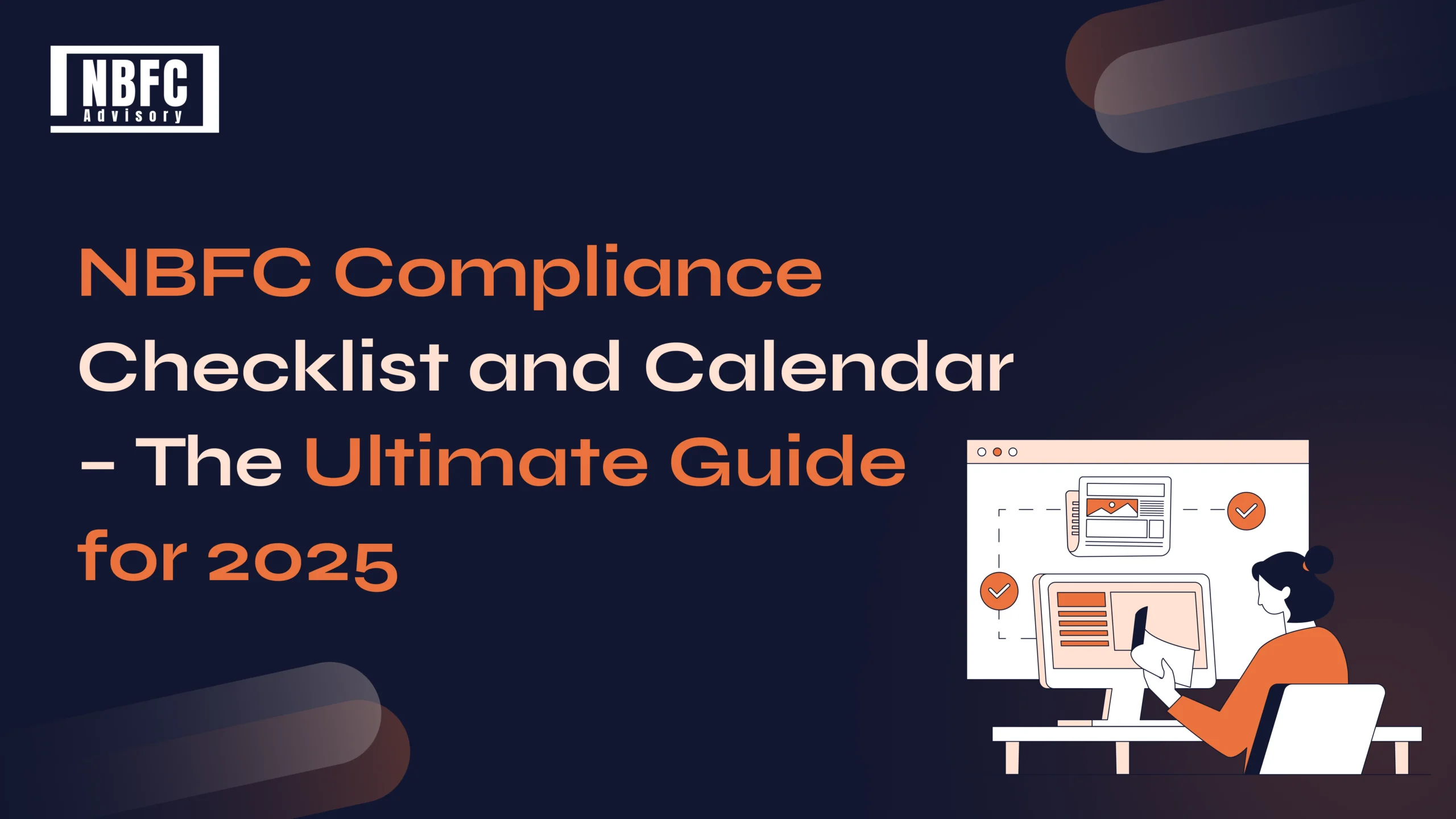The fintech industry in India is booming, with innovative technologies transforming the way individuals and businesses engage with financial services. One of the most impactful innovations in this space is the Account Aggregator Framework, which allows individuals to securely consolidate and share their financial data across different institutions. As a fintech company looking to offer such services, obtaining an Account Aggregator license from the Reserve Bank of India (RBI) is a key step in ensuring your business operates legally and securely.
Here’s a breakdown of what you’ll find in this blog:
- Process of Obtaining an Account Aggregator License:
Step-by-step guidance on how to apply for the license. - Requirements Involved:
Detailed information on eligibility criteria, documentation, and capital requirements. - Importance of Compliance with RBI Norms:
Why adhering to RBI guidelines is crucial for legal operation and ensuring data security.Let’s get started!
What is an Account Aggregator?
At its core, an Account Aggregator (AA) is a platform that enables consumers to share their financial data from different institutions—like banks, insurance companies, and pension funds—into a single, consolidated view. This allows users to get a complete picture of their financial health and helps them make more informed decisions.
The Account Aggregator Framework was introduced by the RBI to make financial data sharing more secure and transparent. It works on a consent-based model, meaning consumers have full control over which data is shared and with whom. If you want to operate in this space, obtaining an Account Aggregator license is crucial, as it ensures you’re abiding by the regulatory standards set by the RBI.
Why Do You Need an Account Aggregator License?
Securing an Account Aggregator license is essential for several reasons:
- Legal Compliance: Without this license, you can’t legally aggregate financial data in India. The RBI regulates this space, and having the license means you’re adhering to their guidelines.
- Trust and Transparency: Users want to know that their data is safe, and working within the framework ensures that you can build trust with your consumers. The RBI-approved license guarantees that you meet data security standards.
- Business Credibility: As the market continues to grow, having an RBI-approved license sets your business apart, giving you the credibility to form partnerships and expand your operations.
The Role of Account Aggregators in Data Sharing
Account Aggregators play a crucial role in enabling data sharing in the fintech ecosystem. They serve as intermediaries between consumers and financial institutions, allowing users to consolidate their data securely and share it with third-party service providers—such as banks, lenders, or insurance companies.
This consent-driven model of data sharing empowers users, giving them control over who accesses their financial information. And this is where data security becomes so important. Protecting this sensitive data from unauthorized access is at the heart of the Account Aggregator framework.
As a fintech business, becoming an Account Aggregator opens up tremendous opportunities. By accessing permission-based financial data, you can provide more personalized products and services tailored to your customers’ needs. Whether it’s offering a customized loan, insurance, or investment options, data aggregation gives you a competitive edge in the market.
Steps to Obtain an Account Aggregator License
Getting your Account Aggregator license is a process that requires careful planning and a solid understanding of the regulatory framework. Here’s a step-by-step guide to help you navigate the application process:
1. Register Your Business
The first step is to register your entity as a Non-Banking Financial Company (NBFC) under the Companies Act, 2013. The RBI mandates that only NBFCs can apply for an Account Aggregator license. So, your business must be officially incorporated as a private or public limited company.
2. Meet Minimum Capital Requirements
One of the essential requirements for obtaining an Account Aggregator license is meeting the net owned fund (NOF) criteria. To obtain an Account Aggregator (AA) license, your company needs to be registered as a Non-Banking Financial Company (NBFC) with the Reserve Bank of India (RBI) and meet specific requirements, including a minimum net owned fund (NOF) of ₹2 crore, and potentially ₹10 crore depending on the type of NBFC. This ensures that your business has the financial stability to handle the technical and operational aspects of running an Account Aggregator platform.
3. Ensure Proper Management and Promoter Eligibility
The promoters and directors of your company should have a credible financial history. They must not have any criminal or negative financial background. Furthermore, the management should possess relevant experience in handling financial data, as they will be responsible for ensuring the security and integrity of user data throughout the aggregation process.
4. Build a Secure Technological Infrastructure
Data security is paramount when dealing with sensitive financial information. Your platform needs to meet stringent requirements for data protection, ensuring that all data is encrypted during transmission and stored securely.
You will need to demonstrate that your system adheres to the RBI norms for cybersecurity, ensuring that users’ data is protected at every stage of the aggregation process. This also includes having proper systems in place for obtaining and managing user consent, as well as ensuring the transparency of data-sharing practices.
5. Prepare the Required Documentation
To apply for the license, you’ll need to submit several documents to the RBI. These include:
- Certificate of Incorporation
- Memorandum of Association (MoA) and Articles of Association (AoA)
- A detailed business plan outlining your financial projections and the services you plan to offer
- Proof of minimum net worth
- KYC documents (PAN, Aadhaar) of the promoters and directors
- Partnership agreements with banks or financial institutions for settlement processes (if applicable)
- Cybersecurity infrastructure plans and AML/KYC policies
6. Submit Your Application
Once you’ve gathered all the necessary documentation, you can submit your application to the RBI. There’s a small application fee of ₹10,000 (as of the latest guidelines). After submission, the RBI will review your application, ensuring that it meets all their requirements.
7. RBI Review and In-Principle Approval
The RBI will thoroughly review your application, and if everything checks out, they will issue in-principle approval. This approval signifies that your business has met the initial criteria, and you can move forward with the next steps, such as setting up your platform and finalizing your systems.
8. System Audit and Final Licensing
Once your platform is ready, you will need to conduct a systems audit to ensure that your technology complies with RBI norms. After completing the audit, you’ll submit the audit report to the RBI for final review. If everything is in order, the RBI will grant you the final Account Aggregator license.
9. Ongoing Compliance and Reporting
Once you’ve received your license, the work doesn’t stop there. As an Account Aggregator, you must maintain ongoing compliance with the RBI’s requirements. This includes submitting regular reports and audits to ensure you continue meeting all data security and regulatory standards.
Challenges in Obtaining an Account Aggregator License
While the process of obtaining an Account Aggregator license is straightforward, there are several challenges that businesses might face:
- Regulatory Complexity: The RBI has strict guidelines when it comes to data security, user consent, and transparency. Navigating these can be tricky, but working with a regulatory expert can help streamline the process.
- Infrastructure Costs: Building a platform that meets all the RBI norms for data security and privacy can be costly. It’s important to have scalable solutions that fit within your budget while still meeting the necessary requirements.
- Extensive Documentation: Preparing all the necessary documents can be a time-consuming and meticulous task. To avoid delays, it’s a good idea to consult with experts who specialize in fintech compliance.
Conclusion
Obtaining an Account Aggregator license in India is a key step for any fintech company looking to enter the financial data aggregation space. The process requires careful planning, a solid understanding of RBI norms, and a commitment to data security. However, once you’ve received your license, you’ll have the legal backing and consumer trust needed to grow your business.
If you’re looking to navigate this process, consulting with NBFC Advisory Services can simplify the journey and ensure you’re fully compliant with all regulatory requirements. Ready to get started? Let’s help you turn your vision into reality and safely enter the world of data aggregation in India.
📞 Contact Us: +91 93287 18979 |
🌐 Visit: nbfcadvisory.com

